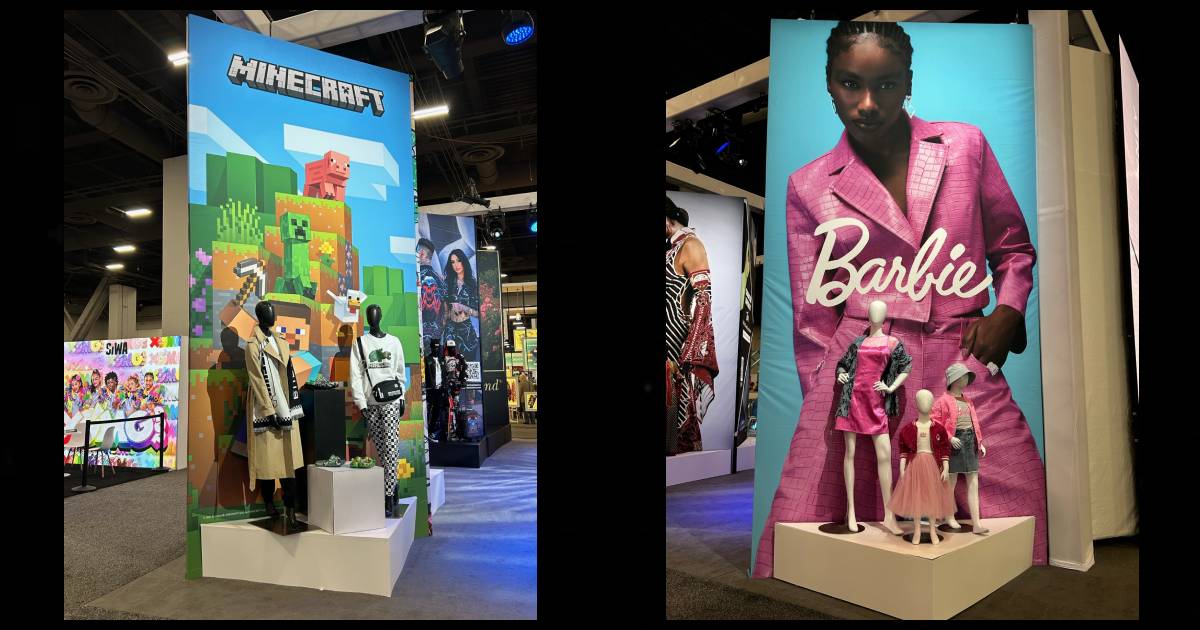Apparel Sets New Designs for Licensing

The apparel business is sizing up brands at Licensing Expo.
That much was clear in the show’s first two days. And the category’s increased focus on licensing comes at a time when many retailers are launching clearance sales to address excess inventory. As a result, many retailers are sticking with the tried and true, with little room for new or unproven properties, industry executives said.
“The Open to Buy (OTB) dollars are lacking right now and the market is very tight,” said Suzy Raia, SVP Consumer Products and Business Development at BBC Studios. “That makes it hard for a middle-of-the-road property with solid fandom but which is not explosively hot.”
As a result, beloved brands are an increasingly hot commodity.
In the case of Paramount’s series Yellowstone, that means expanding apparel lines will be heavily inspired by the script, said Jennifer Staley, SVP Licensing and Brand Management at Bioworld Merchandising. Moving forward, apparel efforts could also expand through higher-priced, better-quality goods.
But it can be difficult to adapt to changing consumer demands in a timely manner because an apparel range can take up to two years to be fully distributed at retail. The full cycle can involve testing periods at eCommerce before continuing through a limited number of stores. That was very much the case for BBC’s Bluey, which has gone on to amass strong sales and 50-60 licensees, Raia said.
When the timing is right, however, it allows IP owners and their apparel partners to take advantage of a cultural moment like the one generated by Yellowstone. The show’s popularity helped licensees Bioworld and Kontoor Brands’ Wrangler to expand distribution to retailers like Tractor Supply and Buc-ees, which has 33 stores in Texas specializing in westernwear.
“It is always great to see content change some of the trends that are out there,” said Steve Armus, VP Global Partnerships and Licensing at Wrangler. “The cowboy culture has become more prominent, and we are seeing it across a lot of brands. So, it is just marrying what people want to see from their favorite show.”
But the apparel industry’s increased focus on licensing is not limited to entertainment brands. For example, Thor Industries’ Airstream travel trailer brand is looking to venture into licensing in a broad way for the first time.
The brand’s agency, Highlight LA, took booth space for the first time and is seeking licensing deals for apparel and other products. The firm lobbied for five years to represent Airstream, which turned to licensing amid strong sales of travel trailers during the pandemic.
Beyond building on brand loyalty, the apparel business is also re-examining retail strategies. For example, Xcel Brands—home to fashion brands like Halston, Isaac Mizrahi, Judith Ripka, and C. Wonder—is switching its business to live streaming through its New York studios.
“The question for all these brands is getting them into live streaming,” said Xcel CEO Robert D’Loren, whose company has worked with the shopping channels QVC and Home Shopping Network (HSN) in the past. “We are moving from television to now live streaming. We have outsourced all [apparel] production and have long sought to reimagine entertainment and social media as one thing. Now, the technology has changed and moved away from TV, and running the day-to-day operations of design, sourcing, and other functions is a huge commitment to time. We need to focus on live streaming for our business.”




